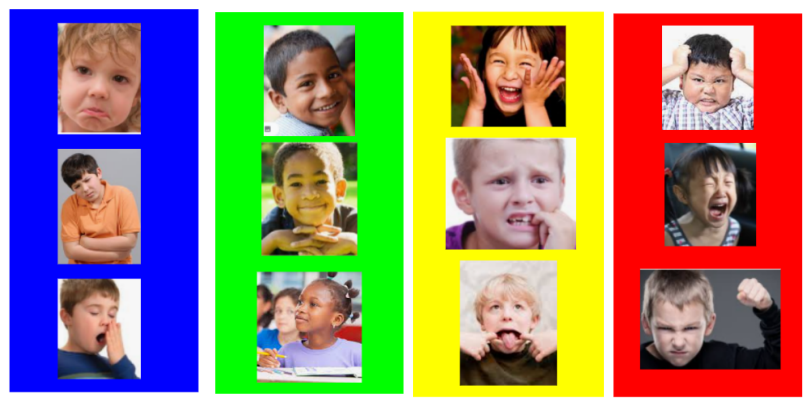Welcome To Reception
Our Intent for Early Years / Foundation Stage
We are committed to providing the best possible early education for all our children in Greenshaw Learning Trust.
The unique child
We want our children to be independent thinkers and effective communicators who are capable, confident and self-assured. We want our children to be constantly developing their curiosity and resilience whilst learning to be strong through positive relationships where there is equality of opportunity for all.
Enabling environments
We believe in providing all children with a safe and stimulating environment that builds on each individual’s wants, needs and interests. We value the importance of our outdoor and indoor environments and believe that these offer children the opportunity to think creatively and critically and develop problem-solving skills.
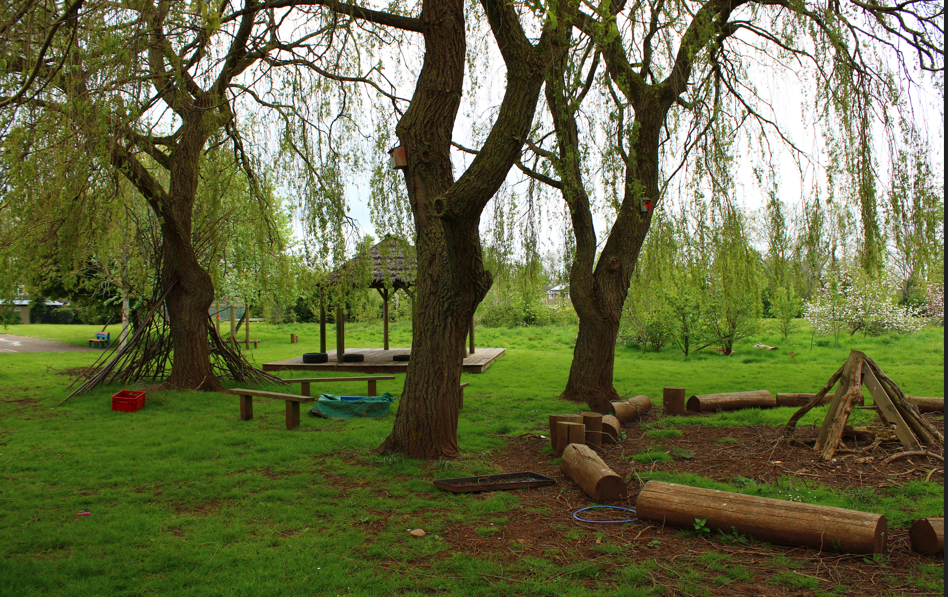
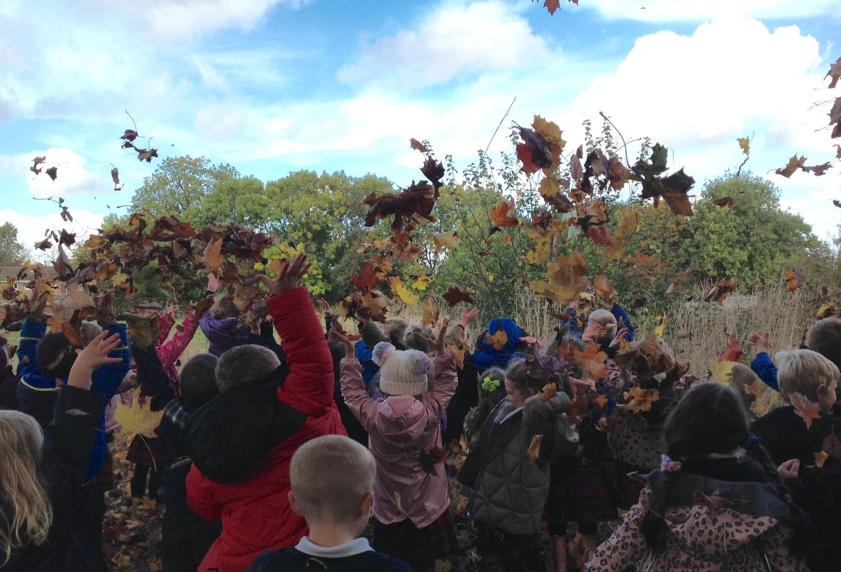
Learning and development
Our children have the opportunity to learn through play. Learning will be active, engaging and suitably challenging; recognising that children develop and learn at different rates.
Adults provide high quality interactions, are role models for learning, teach children skills and provide experiences which ensure their well-being and success now and in the future. Fundamental to this is consistently high quality learning opportunities that develop a rich vocabulary, practise and review skills and knowledge so that what children know, can remember and do is strong. Our children benefit from strong partnerships between all adults and parents/carers.
Characteristics of Effective Teaching and Learning
Through playing and exploring we want children to be given opportunities to investigate activities with a ‘have a go’ attitude. We expect learning to be active and encourage children to use their own ideas and make links within their learning by creating and thinking critically.
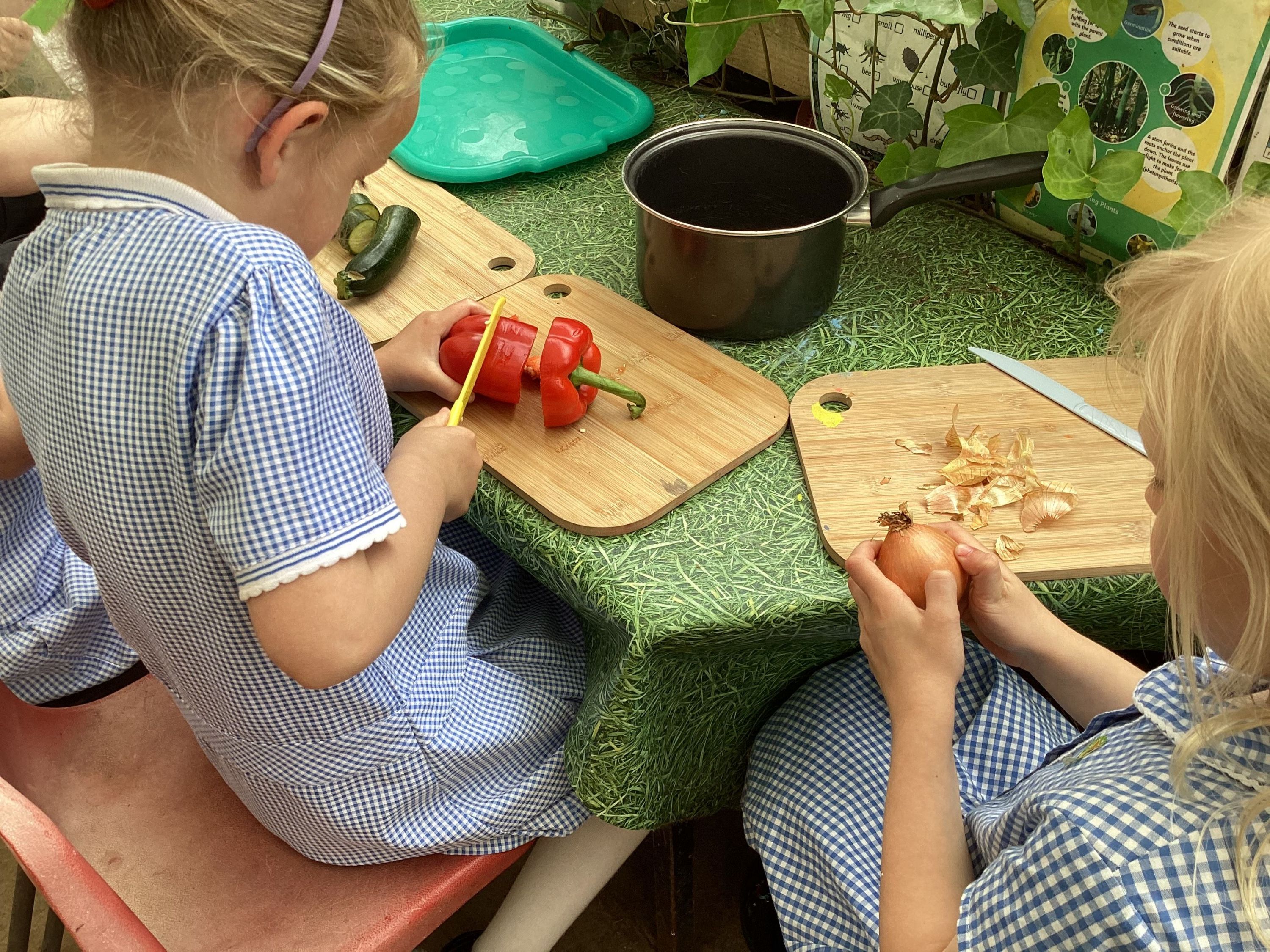
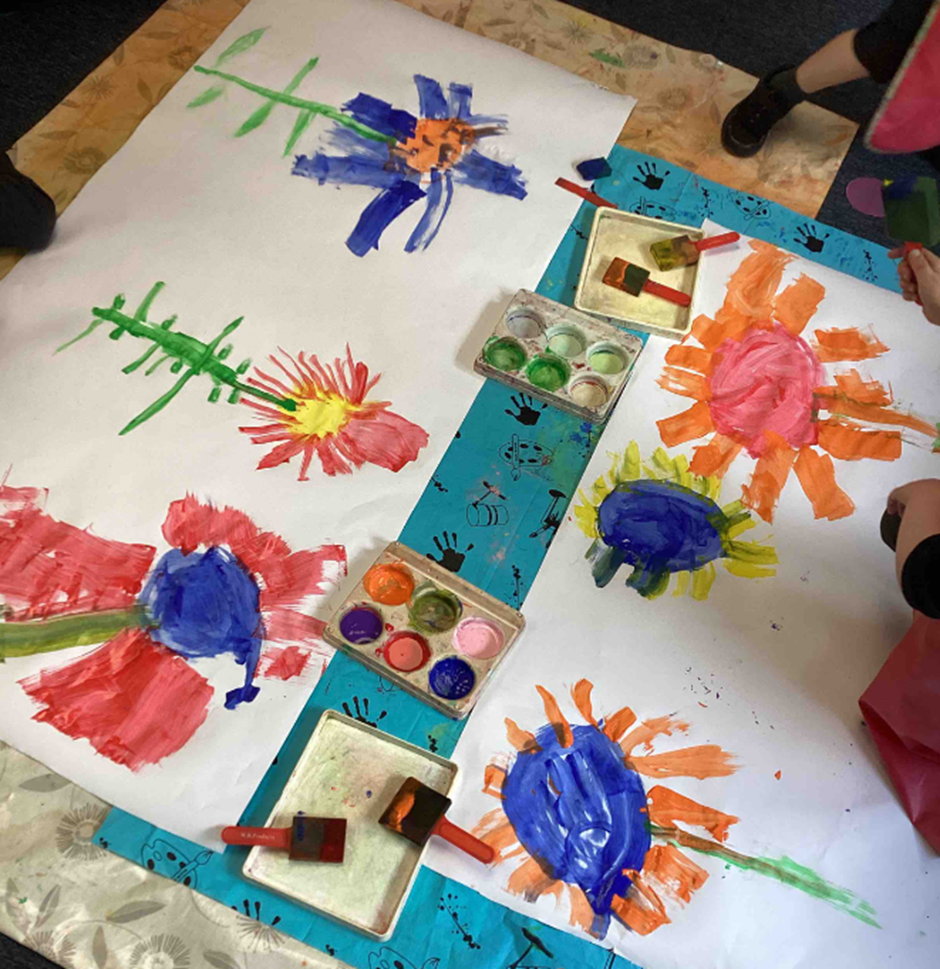
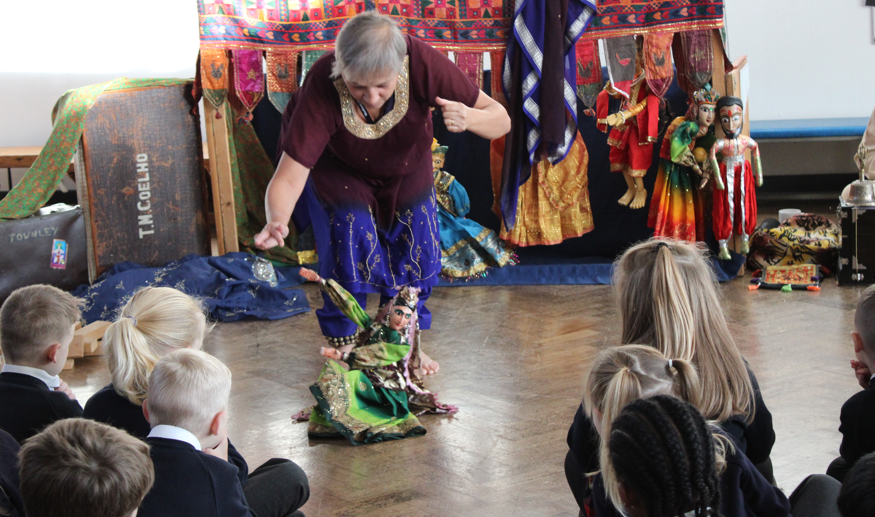
Reading
Reading is at the heart of our curriculum. We start our phonics lessons from the very beginning of reception. We use the Bug Club phonics scheme to support the teaching of reading. Phonics Bug is the dedicated phonics strand of Bug Club, a core reading programme that can be used for independent and guided reading from Reception to Year 6. Whole class texts are chosen by our topics and children's interests. Children also enjoy reading and listening to a variety of books and stories through high-quality guided reading, Drawing Club and Story time sessions. These help to develop vocabulary and comprehension skills, develop familiarity with high-quality texts and provide a model for reading with expression. Children have access to books which are matched to their phonetic ability, but also those which are linked to topics and their interests.
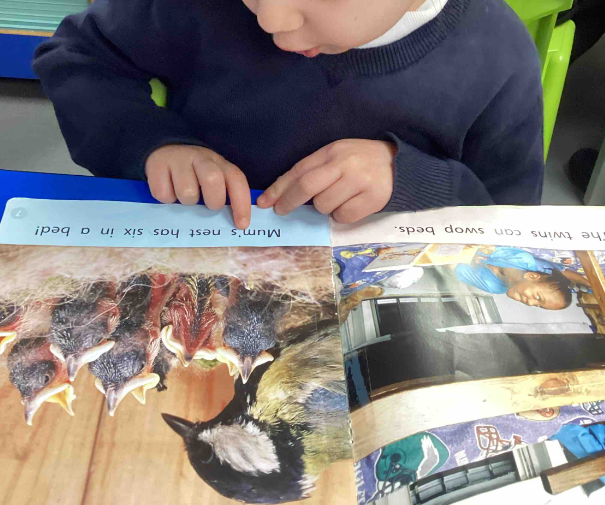
Mathematics
Our mathematics curriculum emphasises the key concepts of number, calculation and shape, space and measures. Children learn knowledge and skills through whole class Magical Maths sessions, games and tasks using manipulatives which are then rehearsed and applied during exploration and adult lead activities. Collaborative and practical mathematics experiences are carefully designed to help children remember what they’ve been taught and to integrate their new knowledge into larger concepts.
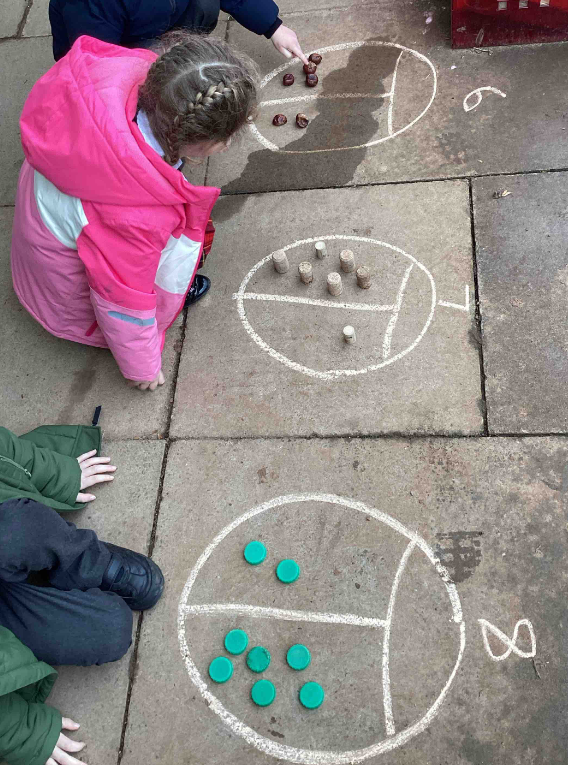
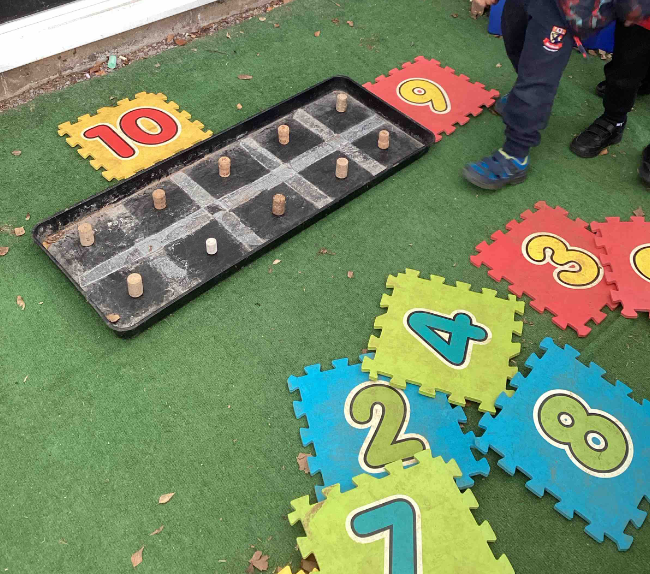
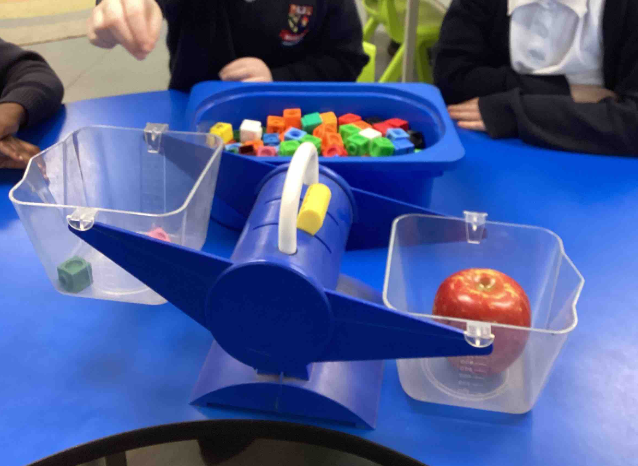
Assessment
Our curriculum supports children to achieve the early learning goals (ELGs) and an overall 'Good Level of Development' by the end of EYFS. It also prepares the children for Year 1. Assessment is carried out through observation and interactions by teachers, children and parents / carers. These are recorded in learning journals and floor books to achieve a holistic view on a child’s development.
Ongoing assessment is an integral part of the learning and development processes. Teachers and support staff observe and talk to the children while they are learning, playing and interacting with others in order to identify their level of achievement, interests and characteristics of effective learning. These observations are used to both shape future planning and to support or challenge a child 'in the moment’. Teachers use this to identify gaps in learning and to shape future planning and provision. Parents and carers are involved in the process through the use of ‘Evidence Me’, which allows interaction and the sharing of information between home and school.
Behaviour in EYFS
At Woodlands, we believe that high standards of behaviour are important for a successful school. This means the children make the best possible progress in all aspects of their school life and work and all staff are able to teach and promote good learning without interruption.
We use approaches such as Zones of Regulation to support the learning and understanding of our feelings and behaviours. More information can be found here.
